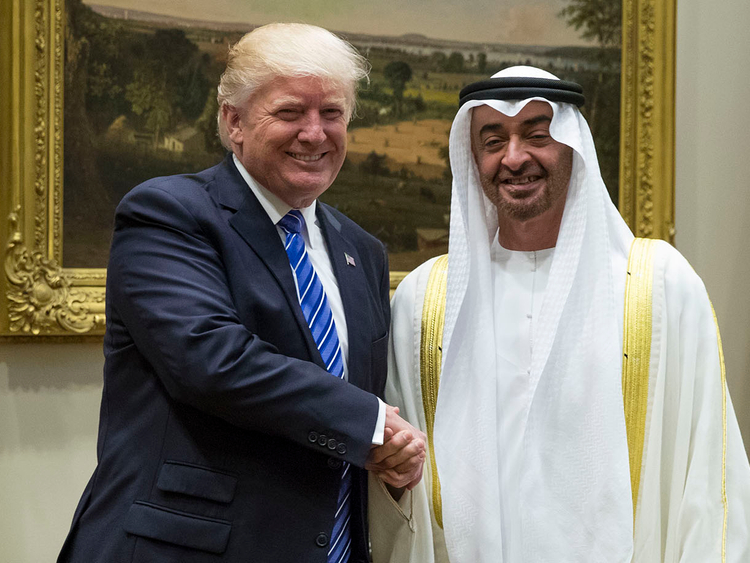
In August 1990, though he didn’t know it, Iraq’s President Saddam Hussain created the conditions by invading Kuwait for the launch in Madrid 14 months later of what remains the most credible attempt to end the Arab-Israel conflict.
His actions shocked the world into addressing a festering injustice that many still agree is at the heart of the disorder that’s beset the Middle East for decades.
But what made it compelling, and still does, wasn’t the hopes it inspired.
It was the support it enjoyed from Israel’s government, the US president, Saudi Arabia and its Arab allies and an undivided Palestinian leadership.
These are the four keys for a better future that have been lost since 1991.
The destruction wrought in the heart of Beirut last week by an explosion that (like Iraq’s aggression) should have been impossible but wasn’t has delivered an overdue wake-up call to Washington, Israel and Arab leaders.
Lebanon looks like it’s on the brink. The chaos that shattered Libya, Syria and Yemen and threatens hopes of a brighter future in Iraq could now engulf another Arab state.
Like in 1991, there is agreement in the US, Moscow and Beijing that superpower rivalry that stymied previous attempts to bring peace should be set aside.
This is the context for the UAE’s decision to seek to normalise relations with Israel in a deal unveiled with US support on 13 August.
The response has been mainly positive.
But we are still some distance from the conditions that allowed the Madrid conference to take place in 1991.
Israel and the US president are on side. But the UAE can’t do it on its own. It needs the support of Saudi Arabia and the backing of Egypt and Jordan, the only two Arab states formally at peace with Israel.
And before this can be declared a breakthrough, the Palestinians will need to be brought on side. The Palestinian Authority in Ramallah condemned the suggestion that large parts of the West Bank should be annexed. It should welcome the deal’s declaration that it depends upon that not happening. But this falls short of the unambiguous commitment to the type of viable state Palestinian leaders want.
Unless that’s in prospect, the UAE initiative will go the way of Madrid.
The Madrid conference was hailed as historic in 1991 but it’s now largely forgotten.
Washington under President Clinton, elected the following year, lost interest in a comprehensive deal and focused on bilateral agreements instead.
Israel’s prime minister Yitzhak Rabin was assassinated in 1995 and Benjamin Netanyahu became head of government the following June.
Despairing of a satisfactory deal, the Palestinians launched the second intifada in 2000 and split after Israel’s withdrawal from Gaza.
The 9/11 atrocity deflected everyone’s attention. Gulf Arab commitment was undermined by the Iraq invasion, the rise of Salafi violence, the Arab Spring and Palestinian division.
But it seems the time’s come after 30 lost years for another attempt at a new beginning. Doubts are normal but we should hope that this small start will reach in due course a far-reaching and positive conclusion.